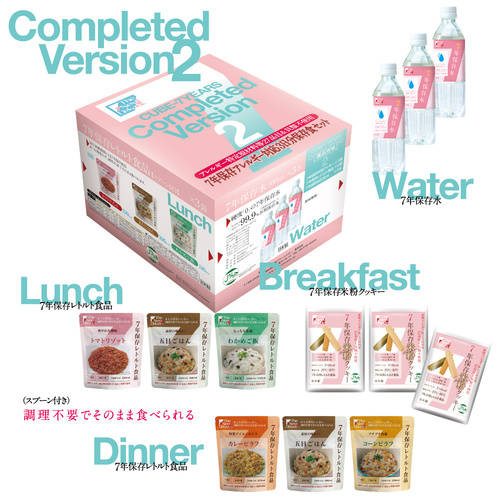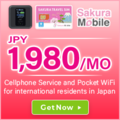Halal Survival Food Packages In JapanBecause of the reoccurring natural disasters like earthquake, typhoon and tsunami the emergency preparedness should be one of the good habits that everyone living in this country needs to pick up sooner or later. As you probably know and have seen with your own eyes from the last few major natural disasters help does not come immediately. It takes time, and how long it takes depends on how big the crisis is, and how fast the local and state relief agencies can reach you. Once a major earthquake strikes, it is anticipated that lifelines such as electricity, gas, and water/sewerage will be damaged, and the supply of goods will be interrupted. Have you ever thought about how you would live at home without electricity, no gas and without running water for a few days? The good news is that these kinds of worries can be minimized by planning ahead. You need to have yourself covered for a few days with the basic stuffs that everybody needs to have, because when disaster strikes, there is a pretty good chance that your local grocery stores are going to be stripped bare in a matter of hours by panicked people and those who failed to prepare for even short-term disasters supplies. Note, that Emergency Stockpile Kit is different from your Emergency Bag which is a backpack containing things taken when evacuating. Prepare An Emergency Stockpile kit For Your HomeThe first and more important thing is water. Regardless of what has happened, you need to have enough clean water to drink (4 liters per day for each person). Consider storing more water than this for pregnant women, for people who are sick and for hot climates. Store at least a 3-day supply of water for each person. For food, a good choice is canned goods; you don’t have to eat well, you just have to eat. Times like this you are not looking to eat fresh and organic, but what you want is to survive. Meet the needs of babies. It is very hard of course, to manage expiration dates while maintaining the proper stock and variety of food. Moreover, the lack of vitamins and minerals in diets after a disaster can lead to death rates higher than those from the disaster itself, says Professor Kazuko Okuda advisor at Japan Disaster Food Society, whose home was damaged in the huge earthquake that struck central Japan in 1995. The easy and safe option is to get survival food packages, especially if you have food restrictions from allergies, vegetarian diets, or religious beliefs that prevent you from eating certain foods. There are different types of Halal Certified Food for a Disaster or Emergency, ranging from white rice and chicken curry to dessert and water which last up to ten years. This gives you a peace of mind, knowing you need to replace the package with the new one ten years later, and of course use the older one before its expiration date. There is even a disaster package for vehicles, called Driver’s Guardian which you can keep in your car’s trunk for emergencies. The emergency foods that local governments provide after a natural disaster are the same long-lasting precooked meals. After a disaster even the emergency foods are in short supply, that’s why different organizations always ask for people’s help and donation. After a disaster if your home is habitable and safe, it is best for you and your family to stay at home until things settles down, as oppose to staying in an overcrowded emergency shelter. So, you’d better order your survival food package now and order what you prefer to eat especially if you have food restrictions. Some of these online stores ship also to overseas, and if they are not, you can always use Rakuten’s Overseas Delivery Services. You'll find these shops name on top of the page Halal Food For A Disaster Or Emergency. The direct link to these stores looks like: (► Exis → General) The electricity is going to be out, so you need flashlights and candles. Keep more than one lighter for candles and else; in case it does breakdown or you lose it. Get a multi-tool like Leatherman or Swiss Army Knife; it has a knife, pliers, can opener and many other tools that you may need. Pack a first aid kit, and include your medication for two weeks; if you are on any medication that you have to have. Another important thing is a battery-operated radio. The Internet will be down and portable telephones will likely not work. The only reliable news you can get will be through radio. Make sure you have plenty of batteries for all this stuff. Shelter – this is for people who are sheltering in place. There is a possibility something fall through your roof, or the structure may become inhabitable. You will want tarps, Mylar tents or blankets. Remember, this is just for few days and you don’t have to spend a lot of money on these things. You can find some of these in discount shops; they may not be ideal but still work. Hygiene – not really necessary for survival for a week, but it will make you feel better. A small travel kit will suffice; toothbrush, toothpaste, soap, hand sanitizer and deodorants. You need wet tissue, so you use less of your drinking water for other purposes. And yes, of course you have all these in your house, but after an earthquake or typhoon will you be able to find them? During an emergency you won’t have time to run around and pick everything up. As you start getting into this preparation, you are going to realize what other things you may need personally, or what other things your particular situation or environment requires which you can add to this package. Special ConsiderationIf you have small children get activities to keep them occupied; things that do not need electricity like coloring books… If you don’t prepare some, your children are going to cause you more stress than the actual natural disaster. They don’t suddenly become adults because there was a natural disaster; you have to find a way to keep them occupied. Developing A PlanIn addition to all of this stuff, all family members, and anybody that is part of the plan needs to know what the plan is. Everyone should know where you are going to meet up in a secondary location in case you can’t meet up at the first one. In Japan every neighborhood has an evacuation area, most often the local playground. Many schools also are set up as temporary shelters. These are the places where you can get the help you may need. If you have this stuff on hand obviously you’re going to be in so much a better shape when the time comes. If you are prepared, you will be able to help other people in your community because you’re already taken care of. It is just like being on an airplane and putting your mask on before you help the persons next to you to put their mask on. How prepared are you for a natural disaster? Related Information:
0 Comments
Leave a Reply. |
Halal In Japan
|
|



 RSS Feed
RSS Feed





